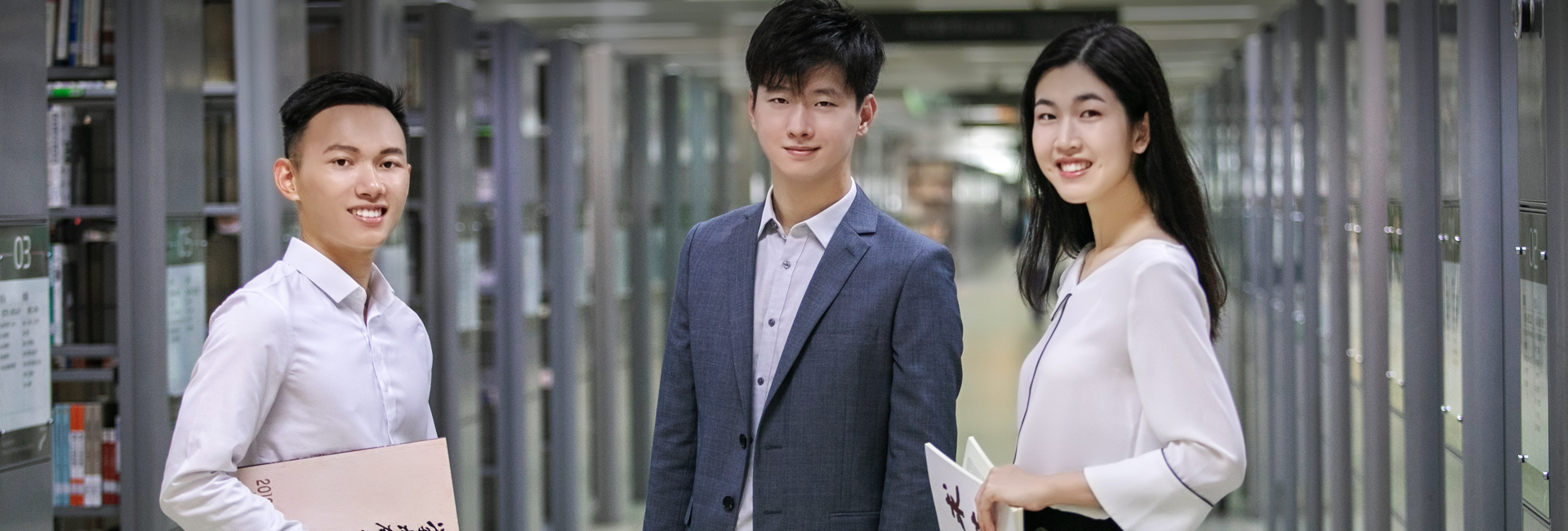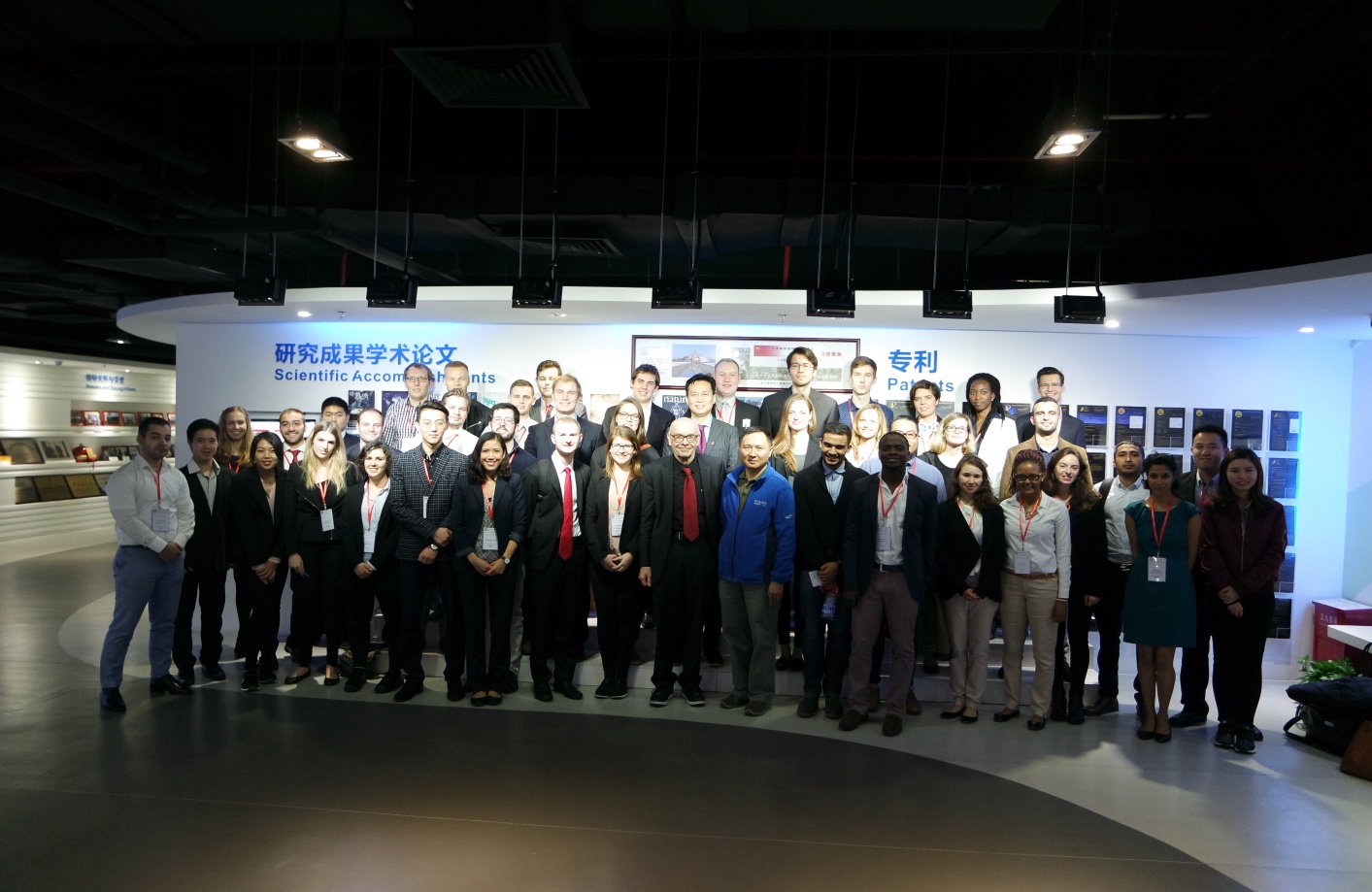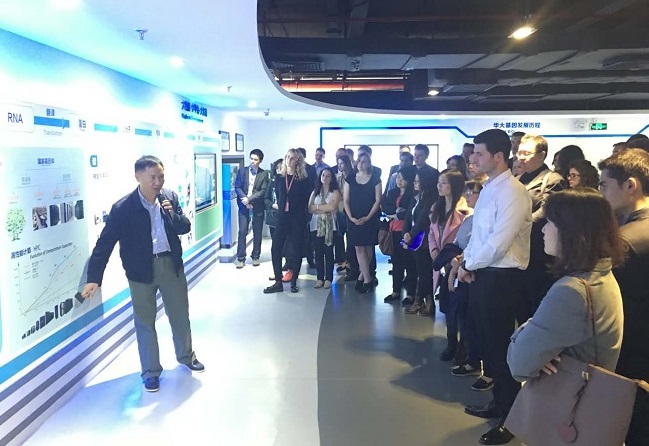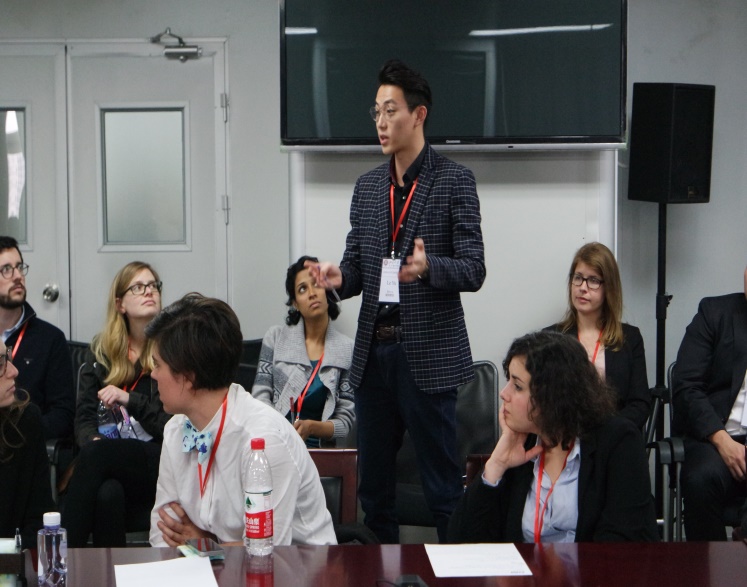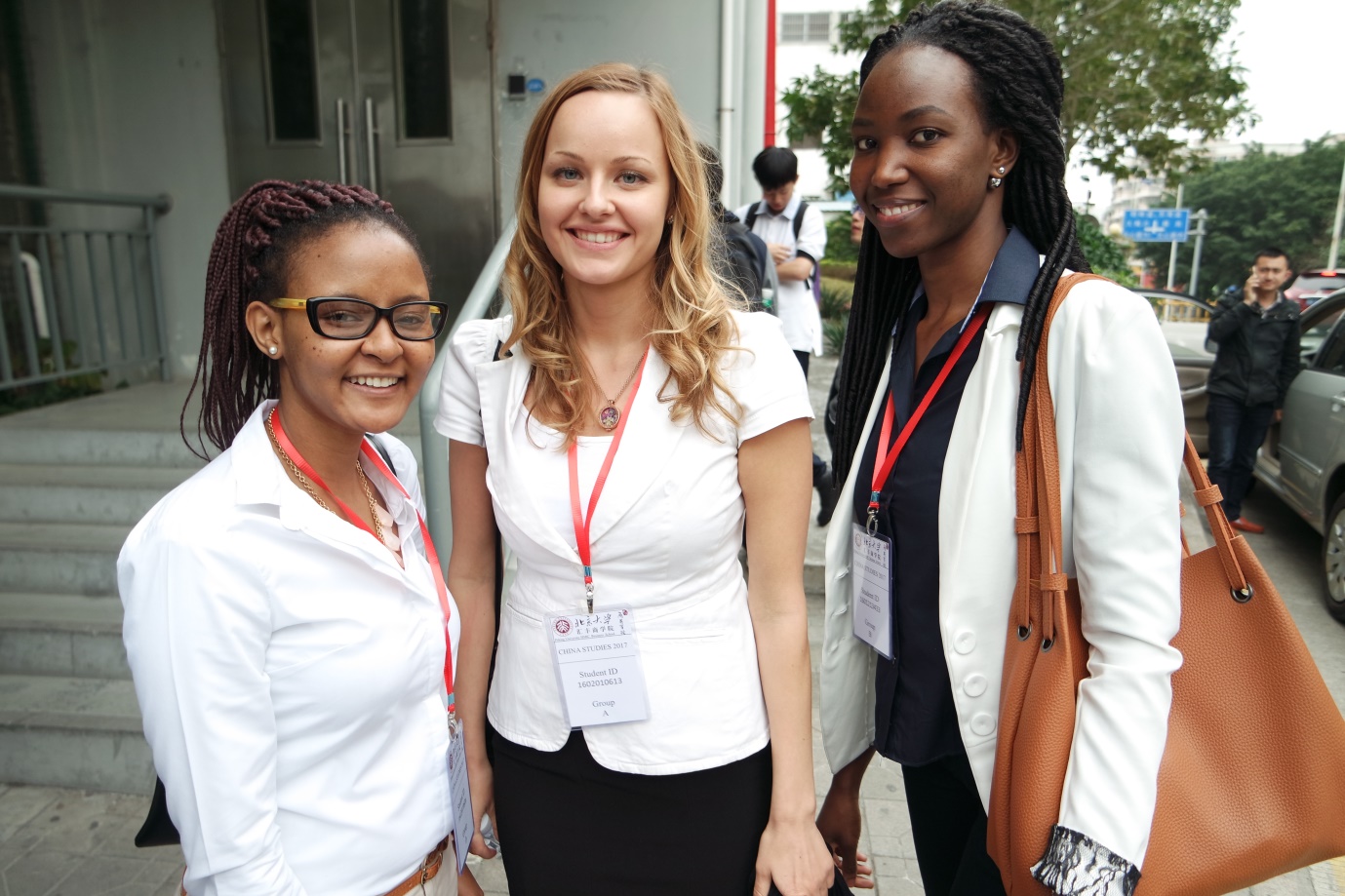On Wednesday, March 15, the China Studies class of 2017 visited BGI (Beijing Genomics Institute) in Shenzhen. Located in Yantian District, BGI is a world-class facility geared towards providing research, manufacturing and commercial operations to its global clients.
China Studies class in the BGI Genetics Museum
Led by Professor Haifeng Huang and accompanied by Professor Gerhard Stahl (former secretary general of the EU Committee of the Regions and visiting professor at PHBS), the students were first ushered into the seventh floor exhibition room for a visual history about BGI. Dr. Gengyun Zhang, the vice-president and chief scientist of BGI, personally received the student visitors and introduced the development of BGI from its beginnings as a research NGO to its current status as an international player in genomics and interpretation of genetic test results. BGI aims to empower large-scale human, plant and animal genomics research by getting involved in the Human Genome Project and helping in the fight against widespread diseases such as SARS, Ebola, HPV and cancer.
Zhang Gengyun, vice president of BGI’s research institute, introduces the history BGI and its CSR practices.
Zhang also addressed questions raised by students, for instance, genetic mapping in China. Since genetic mapping is being on all recent births in the U.S., a Chinese-Bolivian international student, Jason L. Yu, asked whether it could be done in China. Zhang gave him a positive response, and explained how mapping has been done for a long time, but with focus on one locus at a time (a locus, in genetics, is the position on a chromosome). BGI is hoping to expand this research to more loci in future.
Jason, a student from Bolivia, asks a question related to genetic mappings
To add on, Jason then asked whether in future there will be the possibility of gene testing done for the normal man on the street. "Just as the first cell phones were available only to the elite few due to the high price, the gene testing is first privileged to few people and then will become affordable to almost everyone with the advancement of technology," commented Zhang.Further, Dr. Zhang shared BGI’s vision to make individual health care services based on an individual’s genome accessible and affordable for ordinary people, and discussed with the students about BGI’s business-to-business (B2B) and business-to-consumer (B2C) services.
Ladies from the China Studies group: from left Realeboga Maboe (South Africa), Julia Kiviniemi (Finland) and Ottilia Iiyambo (Namibia)
The visit to BGI offered PHBS students from different countries a chance to learn how niche organizations can be restructured due to an increase of demand from an NGO to a global company, and what great possibilities science has for our future as humans. They marveled at these great leaps in science being made right in the backyard of Shenzhen, the most entrepreneurial city where they chose to pursue the graduate education.
Reporter: Realeboga Maboe (South Africa)
Photographer: Lotta Matikainen (Finland)
Edited by Annie Jin

